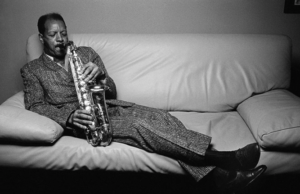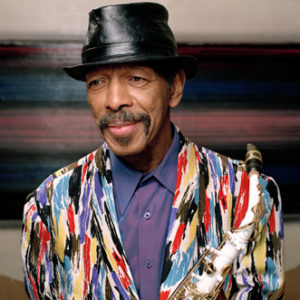
Coleman’s publicist broke the news but has yet to release much additional information about the musician’s passing.
While several reports cited cardiac arrest as the cause of Coleman’s death, that has not been confirmed by anyone closely connected to the jazz revolutionary.
Coleman is responsible for introducing the world to the unconventional sounds of “free jazz,” but that achievement didn’t always earn him praise and admiration.
With a string of unconventional bars, keys and cord changes, many audience members questioned his talent and even heckled Coleman before he became widely renowned as one of the greatest jazz musicians of his time.
With a custom, self-designed wardrobe of funky suits, Coleman’s appearance was just as unusual as his sound but the quirks that at one point were getting him booed off stages and criticized by jazz lovers, eventually earned him the love and respect of many.
“If you were an early admirer, you quickly grew accustomed to enduring a measure of that disparagement yourself in defense of such genius,” The Guardian’s Richard Williams wrote of Coleman. “Once the battle lines had been drawn, the pure and completely original beauty of his music provided a shield against the scorn of those to whom his apparent weirdness represented an affront and a threat.”
On one disheartening night in 1949, he was even attacked after one of his shows. A group of men in Baton Rouge, Louisiana, took the multi-faceted jazz star outside and beat him. But years of rejection only served to prove how unique his sound really was—how innovative his work had come to be.
Despite a grim past where he wasn’t appreciated for his musical prowess, he is today hailed as an artist so great he deserves to be compared to legendary artists like Louis Armstrong and Charlie Parker. No matter how people felt about his sound, nobody could deny it’s uniqueness.
“Coleman’s outlaw approach involved what he called ‘harmolodics’—breaking away from traditional harmonic structure and ‘removing the caste system from music,’ “ Reuters reported.
After enduring years of pushback, Coleman was honored with a Grammy Lifetime Achievement Award in 2007 and also snagged a Pulitzer Prize for Music in addition to a Grammy nomination for his album, Sound Grammar.
They were the type of coveted honors that Coleman—a man who was truly in love with music and creativity rather than the money and fame—so rightfully deserved.
“I wasn’t so interested in being paid,” Coleman told Esquire in 2009. “I wanted to be heard. That’s why I’m broke.”
Coleman often described his childhood days in poverty in a surprisingly lighthearted manner. He once commented that his family was so “po’ we couldn’t afford the ‘o’ and the ‘r.’”
But nothing could stop him from pursuing his musical passions.

It was a surprising start for a boy who would grow up and create a style of music that had never touched the radio nor reached the ears of thousands of listeners the way those popular, perhaps somewhat generic, radio hits did.
Eventually, the teenage saxophone player started playing in honky tonks and even took on a gig playing blues in a minstrel show in the Deep South.
But once he made his way to the west coast, he embraced his unique “free jazz” style and finally came into his own as a musician. If you ever had the chance to ask Coleman about his revolutionary sound, however, you’d probably be surprised to find how humble he was about his innovation.
In one interview he insisted that he had no idea he even created a new sound or broke barriers in the world of jazz.
“I didn’t know I was improvising,” he once said, according to Reuters. “I just thought that was the way you played music… I didn’t think of a structure and what you could and couldn’t do.”
As Coleman aged, he refused to step away from music and capped off a career of more than 40 studio albums with one final album in 2014.
In addition to his remarkable solo feats, Coleman also helped form the rock-funk band Prime Time, which served as yet another avenue for his musical genius.


